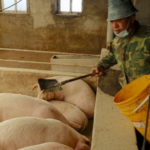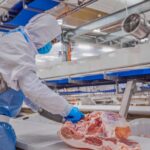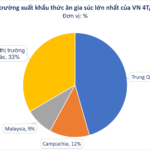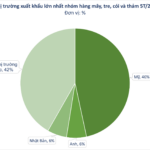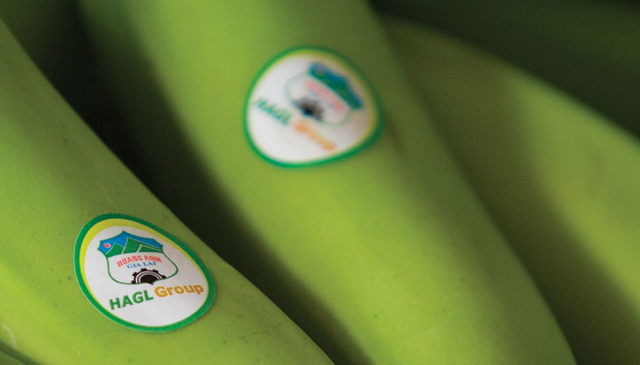Enterprises Leading the Way in Advanced Processing
This is the insight of Dr. Nguyen Van Trong, Vice President of the Association of Farm and Agricultural Enterprises of Vietnam, regarding the domestic livestock industry in recent years.
Mr. Trong believes that with the contribution of large livestock enterprises, we have achieved the target number of livestock as set out in the Strategy for the Development of Livestock in the period of 2021-2030, with a vision towards 2045. The current focus should be on boosting production volume and quality while reducing costs to assert our position in the domestic market. Large enterprises play a leading role in high-tech livestock farming, driving closed-loop production chains and investing in advanced processing.
One enterprise that stands out in this regard, according to Mr. Trong, is the Masan Group, which possesses a full range of “weapons” to develop a closed-loop value chain, from commercial breeding, processing, slaughterhouses, and product manufacturing to the final stage of market distribution, serving consumers directly.
Specifically, Masan owns a high-tech pig farm in Quy Hop, Nghe An province, with a total area of over 223 hectares and an investment of up to 1,400 billion VND. This farm has the capacity to supply the market with 250,000 pigs per year. Up to this point, Masan is the only enterprise in the country that owns two chilled meat processing plants, MEATDeli Ha Nam and MEATDeli Saigon, equipped with the most modern technology. These two projects have a total investment of over 5,900 billion VND. In addition to providing 140,000 tons of chilled meat per year, the plants also process sausages, hams, and other products, with an output of 145,000 tons per year.
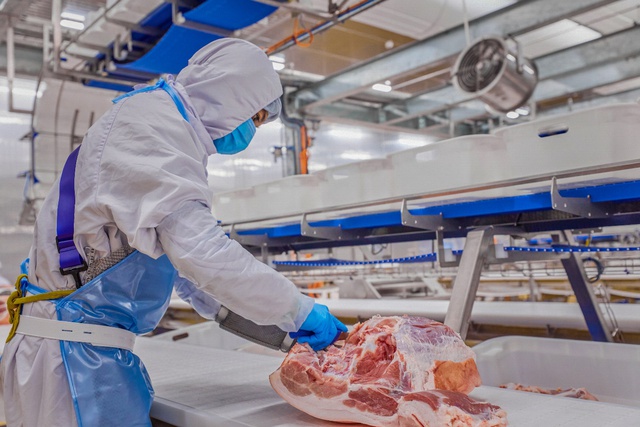
Compared to FDI enterprises, Masan has a prominent strength in chilled meat and a distribution system of thousands of supermarkets and convenience stores nationwide. MEATDeli’s chilled meat products, introduced since 2018, have gained a foothold in the market and are favored by consumers for their attractive packaging, convenience, and good quality. Among the closed-loop chains, Masan is still considered the leading unit, strong in finance and technology, and capable of competing with foreign companies,” analyzed Mr. Trong.
Mr. Nguyen Quoc Trung, General Director of Masan MEATLife, said that focusing on developing the three major brands of MEATDeli, Ponnie sausages, and Heo Cao Boi – representing the traditional, processed meat, and nutritional snack sectors, respectively – has helped Masan MEATLife achieve significant achievements in increasing revenue and leading the animal protein market in Vietnam. In addition, Masan is effectively leveraging its strengths in the poultry industry, developing branded chicken products after the merger with 3F Viet.
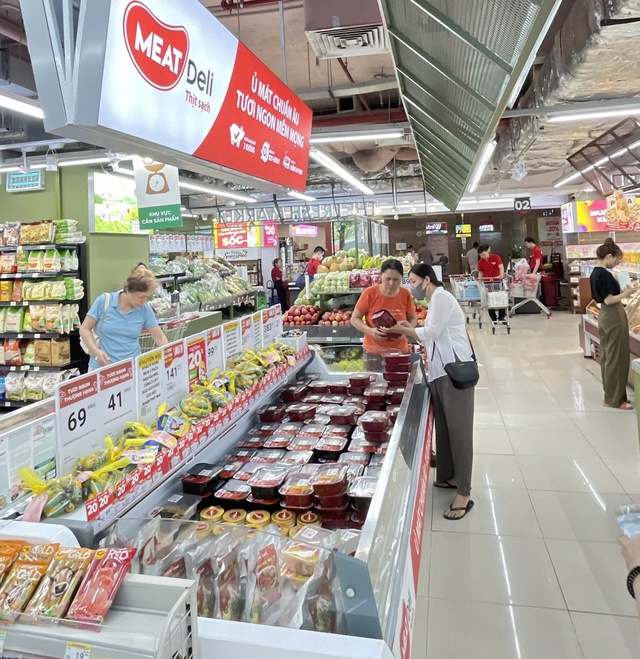
The Vietnam Livestock Association representative said that, along with Masan, some other domestic enterprises have also made impressive strides. These are companies that are heavily investing in closed-loop chains, including the Dabaco Group, which has participated in several high-tech science projects.
Specifically, at the beginning of 2025, Dabaco inaugurated the Dacovet vaccine production plant with an investment of over 300 billion VND and a capacity of 200 million doses per year. The Group also continues to invest in high-tech livestock projects in Lao Cai, Thanh Hoa, Quang Tri, Thai Nguyen, and Bac Kan and expand the second phase of the oil press plant with a capacity of 1,000 tons per day, also in 2025.
Shaping the Livestock Industry
A report by the Ministry of Agriculture and Environment reveals that Vietnam’s livestock industry is entering an important period of transformation, in line with the goals of the Strategy for the Development of Livestock in the period of 2021-2030, with a vision towards 2045. This transformation involves reducing the proportion of household livestock farming, increasing the market share of high-tech, closed-loop, and chain-based livestock farming to minimize disease risks and reduce production costs… With the Livestock Law of 2018 coming into effect, the domestic livestock industry will be reshaped towards sustainability, bringing high economic value, and being environmentally friendly.
Notably, as consumers are increasingly concerned about clean food, branded food, and food produced according to standards and convenience, chilled meat and processed meat products have significant growth potential and open up export opportunities to demanding markets. “It can be seen that Masan MEATLife has taken a step ahead of foreign enterprises and is leading the market in the chilled meat and ready-to-eat/marinated meat segments. This ‘weapon’ of Masan MEATLife has contributed to reshaping the country’s meat industry, which is worth billions of dollars,” said Mr. Nguyen Van Trong.
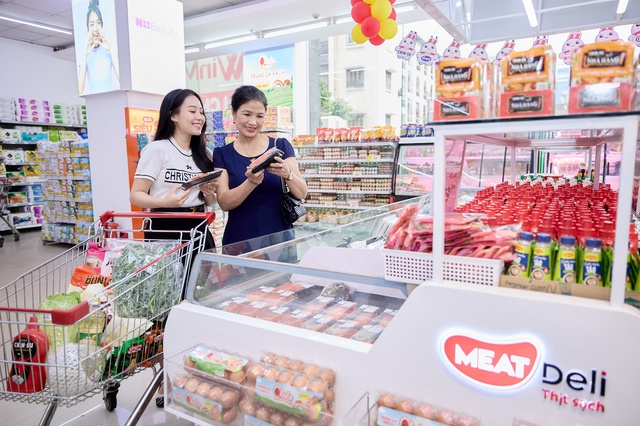
Given these positive signals, a series of domestic enterprises are setting profit targets for 2025.
Mr. Nguyen Nhu So, Chairman of the Board of Directors of Dabaco, said, “If the pork price remains stable at 60,000 VND/kg, we are sure to achieve a net profit of 1,500 billion VND.”
The “tycoon” of chilled meat, Masan MEATLife, continued its winning streak in the first quarter of 2025, with revenue of 2,070 billion VND, a growth of more than 20% over the same period in 2024; gross profit increased by 43% to over 571 billion VND, and net profit reached nearly 116 billion VND. In particular, processed meat with the Ponnie and Heo Cao Boi brands made an impression with an average monthly revenue of 240 billion VND.
When it was first launched, Masan MEATLife set a target for 2025 to hold 10% of the animal protein market share in Vietnam. At the recent Annual General Meeting of Shareholders, Masan’s leaders emphasized that the company’s long-term strategy is to transition comprehensively into a branded meat processing company and become a leading enterprise in the field of branded meat and processed meat.
Masan MEATLife sets a revenue target for 2025 of 8,250 – 8,749 billion VND, of which the contribution from the processed meat segment is expected to account for 36-37%.
Comparing domestic enterprises like Masan, Dabaco, and 3F with FDI enterprises, Mr. Nguyen Van Trong analyzed that the former has the advantage of being Vietnamese enterprises, thus having a deeper understanding of the culture, taste preferences, and consumer behavior of Vietnamese people. As a result, they can develop processed meat products (sausages, hams, and sausages) that suit the local market and are well received. This advantage has also enabled enterprises like Masan to successfully build their brand stories, promote their products, and create differentiation in the market.
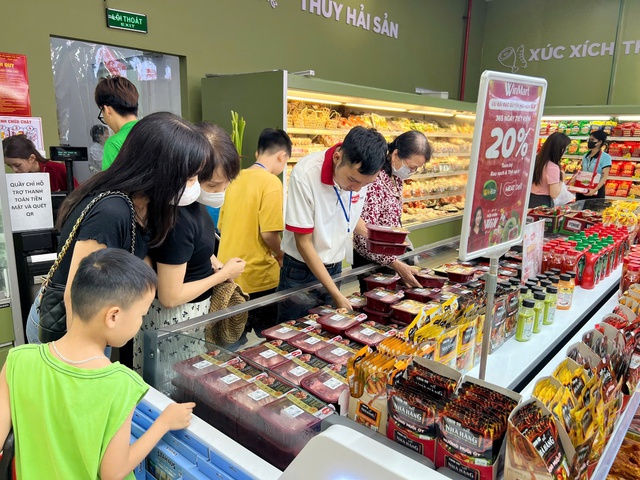
“Not all enterprises can do everything from start to finish, so there should also be policies to help people link each stage to form a value chain, for example, the model of four-party linkage for exporting chicken to Japan. Chain linkage also helps reduce production costs, making Vietnam’s livestock products more competitive in the export market,” said Mr. Trong.
At a conference on implementing solutions to promote livestock development, Deputy Minister of Agriculture and Environment, Phung Duc Tien, suggested: “I understand that Masan’s deep processing accounts for up to 31% of the value. Enterprises need to invest in deep processing to bring the livestock industry to the world.”
Deputy Minister of Agriculture and Environment, Phung Duc Tien, expressed his expectation: “I believe that in the future, the livestock industry will witness rapid development thanks to the contribution of large enterprises, not only meeting the needs of the domestic market of over 90 million people and international tourists but also targeting the vast export market. Therefore, the livestock industry needs to promote high-tech, modern, closed-loop, and automated farming models to optimize production, create competitive and high-quality products, and turn livestock into an export industry with a turnover of billions of dollars.”
The Great Trade Rebalance: China’s Strategic Pivot on Imports and its Repercussions on Global Markets
China is planning to reduce the proportion of soybeans in animal feed, which could leave millions of tons of U.S. soybeans surplus.
The Livestock Giants: Reinforcing Their Dominance in the Domestic Market
The domestic livestock and poultry farming industry has witnessed a significant transformation in recent years, with a remarkable rise of local enterprises. Among them, a few stand out with their well-strategized investments and long-term vision, posing a formidable challenge to foreign companies. These domestic powerhouses include the likes of Masan, Dabaco, 3F, Hoa Phat, and BAF, who are shaping the industry with their formidable presence.
Unveiling the New Brand Identity: DIC Holdings Construction JSC
The emergence of the DICERA Holdings brand signifies a strategic transformation and a manifestation of a progressive mindset. It reflects a fierce spirit of innovation and an ambitious vision to soar to new heights, aligning with the nation’s ascendance. This evolution transcends mere visual rebranding; it embodies a resolute commitment to embracing change and pursuing excellence in a rapidly evolving era.
The Ultimate Guide to Choosing Fresh Meat for Modern-Day Meals
The European-standard chilled meat, processed through the 3-step ‘Quick-chill, Balance-chill, Maintain-chill’ procedure, is gaining popularity among discerning consumers.



























